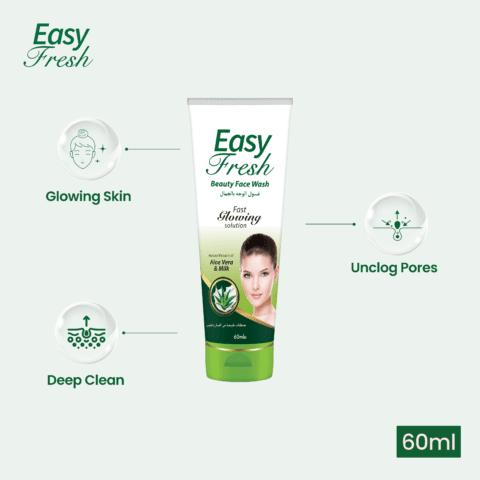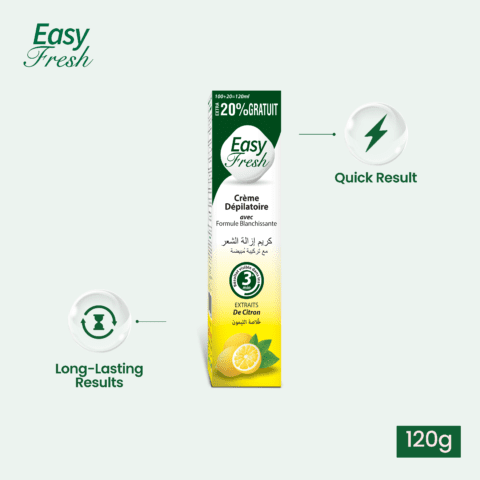As the temperatures rise during the scorching summer months, many of us find ourselves battling excessive sweating. While sweating is a natural bodily function that helps regulate temperature, excessive sweating can lead to discomfort and skin-related issues. In this article, we’ll explore effective strategies to manage excessive sweating and keep your skin feeling fresh and healthy all summer long.
Table of Contents
- Understanding Excessive Sweating
- Causes of Excessive Sweating in Summers
- The Importance of Proper Hydration
- Choosing Breathable Fabrics
- Opt for Loose-Fitting Clothing
- Use Antiperspirants and Deodorants
- Maintain a Regular Skincare Routine
- Cool Showers for Cooling Relief
- Utilize Sweat-Resistant Makeup
- Incorporate Natural Remedies
- The Role of Diet in Sweating
- Stress Management Techniques
- Stay Indoors During Peak Heat
- Seek Medical Advice When Needed
- Conclusion
Understanding Excessive Sweating
Excessive sweating, also known as hyperhidrosis, occurs when the body produces more sweat than necessary to cool itself. While sweating is essential for temperature regulation, factors like genetics, hormonal changes, and even stress can contribute to an overactive sweat response.
Causes of Excessive Sweating in Summers
During the summer, the combination of higher temperatures and humidity can intensify sweating. Additionally, engaging in physical activities or spending time in the sun can lead to increased sweat production. Understanding these triggers can help you take proactive steps to manage excessive sweating.
The Importance of Proper Hydration
Staying hydrated is crucial not only for overall health but also for regulating body temperature. When your body is well-hydrated, it’s better equipped to manage heat and reduce excessive sweating. Aim to drink an adequate amount of water throughout the day.
Choosing Breathable Fabrics
Wearing lightweight and breathable fabrics like cotton and linen allows better air circulation and reduces the risk of sweat becoming trapped against the skin. These materials help to keep you cool and minimize skin irritation.
Opt for Loose-Fitting Clothing
Loose-fitting clothing allows for better airflow and prevents friction, reducing the likelihood of sweat-related skin issues. Opt for loose garments that don’t cling to your body, especially during hot and humid weather.
Use Antiperspirants and Deodorants
Antiperspirants work by blocking sweat glands, while deodorants help mask odor. Look for antiperspirants that contain aluminum chloride for effective sweat control. Apply these products to clean, dry skin to maximize their effectiveness.
Maintain a Regular Skincare Routine
A consistent skincare routine is essential for managing excessive sweating. Use a gentle cleanser to keep your skin clean and free from bacteria. Exfoliate regularly to prevent clogged pores, and use a lightweight, oil-free moisturizer.
Cool Showers for Cooling Relief
Taking cool showers can provide instant relief from excessive sweating and help lower your body temperature. Use mild soap and avoid hot water, as it can strip your skin of its natural oils.
Utilize Sweat-Resistant Makeup
If you wear makeup, opt for sweat-resistant and oil-free products. These cosmetics are less likely to clog pores and contribute to sweat-related skin issues. Remember to remove your makeup thoroughly before bedtime.
Incorporate Natural Remedies
Natural remedies like aloe vera gel, witch hazel, and tea tree oil can help soothe irritated skin and reduce excessive sweating. These ingredients have anti-inflammatory properties that provide relief and promote healthier skin.
The Role of Diet in Sweating
Certain foods and beverages, such as spicy dishes and caffeine, can contribute to increased sweating. Opt for a balanced diet rich in fruits, vegetables, and whole grains to help regulate your body’s sweat response.
Stress Management Techniques
Stress can trigger excessive sweating, so practicing relaxation techniques such as deep breathing, meditation, and yoga can help manage stress levels and reduce sweat production.
Stay Indoors During Peak Heat
When the sun is at its strongest, it’s best to stay indoors or seek shade to avoid overheating and excessive sweating. Plan outdoor activities during cooler parts of the day to minimize sweat-related discomfort.
Seek Medical Advice When Needed
If excessive sweating becomes a persistent issue that affects your daily life, consider seeking medical advice. A dermatologist can recommend treatments such as prescription antiperspirants, Botox injections, or other medical interventions.
Conclusion
Managing excessive sweating during the summer requires a combination of lifestyle adjustments and proper skincare. By staying hydrated, wearing breathable clothing, using effective antiperspirants, and incorporating natural remedies, you can keep your skin feeling fresh and comfortable even in the hottest weather. Remember that everyone’s body is different, so it may take some trial and error to find the strategies that work best for you.
FAQs
- Is excessive sweating harmful?
- Excessive sweating is generally harmless but can lead to discomfort and skin issues. It’s essential to manage it to maintain skin health.
- Are there any home remedies for excessive sweating?
- Yes, natural remedies like aloe vera and witch hazel can help soothe skin and reduce sweating. However, results may vary.
- Can diet affect sweating patterns?
- Yes, certain foods and drinks, like spicy foods and caffeine, can trigger increased sweating.
- When should I seek medical help for excessive sweating?
- If excessive sweating significantly impacts your quality of life, consider consulting a dermatologist for personalized advice.
- Are there medical treatments for excessive sweating?
- Yes, medical treatments like prescription antiperspirants and Botox injections can help manage excessive sweating when home remedies aren’t sufficient.




Leave a comment
Your email address will not be published. Required fields are marked *